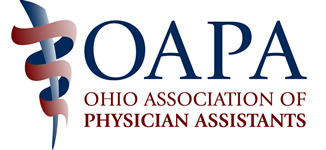Complete Story
12/27/2023
Op-Ed: OAPA Region 7 Director, Anu Mathur, MS, PA-C, on Why PAs Should Pay it Forward: A Call for Physician Assistants to Take the Lead in PA Education
As physician assistants (PAs), we owe much of our success to the invaluable mentorship we received early in our careers. It’s the guidance of experienced preceptors that allowed us to spread our wings, gain confidence in our clinical decision-making, and ultimately become the skilled healthcare professionals we are today. Now, as we reflect on our journey, it is crucial that we recognize the growing need for PAs to actively engage in the education of the next generation.
PA programs across Ohio are facing a significant challenge – the shortage of dedicated and involved preceptors. These mentors play a pivotal role in shaping the future of our profession by imparting knowledge, sharing experiences, and fostering the development of future PAs. However, the demand for clinical placements far exceeds the supply of willing preceptors, creating a bottleneck in the education of aspiring PAs.
Our profession thrives on a legacy of mentorship, and it’s time for each one of us to pay it forward. Becoming a preceptor is not just a responsibility; it is an investment in the future of our profession. As practicing PAs, we are uniquely positioned to provide real-world insights, clinical expertise, and a firsthand understanding of the challenges and triumphs that define our profession.
Benefits of Being a Preceptor:
- Continuous Learning
Serving as a preceptor provides an opportunity for continuous learning. Engaging with students exposes us to the latest developments in medicine, medical technology, and evidence-based practices. Staying abreast of cutting-edge advancements enhances our own knowledge base and ensures that we remain at the forefront of our field.
- Leadership Development
Precepting is not only a chance to share clinical expertise but also an avenue to demonstrate leadership outside the healthcare organization. By guiding and shaping the next generation of healthcare professionals, preceptors play a vital role in cultivating leadership qualities among aspiring PAs, contributing to the overall strength and resilience of the healthcare workforce.
- Professional Recognition
Many institutions recognize the vital role of preceptors in PA education and offer added benefits, such as titles as clinical adjunct professors. This recognition not only elevates the status of preceptors within their respective organizations but also contributes to the overall professional development and esteem of the entire PA community.
- Access to Resources
Some institutions provide preceptors with access to vast online medical libraries, enabling them to stay informed about the latest research, guidelines, and educational materials. This access enhances the preceptors’ ability to provide comprehensive and up-to-date guidance to students, fostering a culture of excellence in education.
- Continuing Medical Education (CME)
Many preceptorship programs offer opportunities for preceptors to earn CME credits. This not only fulfills professional development requirements but also ensures that preceptors remain engaged with ongoing advancements in healthcare, ultimately benefiting both the preceptor and the students under their guidance.
- Personal Fulfillment and Reduced Burnout
Actively participating in PA education can provide a sense of purpose and fulfillment. The opportunity to shape the next generation of PAs can be a powerful antidote to burnout, offering a renewed enthusiasm for our profession as we witness the positive impact we have on aspiring healthcare professionals.
Getting Started:
If you are ready to take the leap and become a preceptor, getting started is simpler than you might think. In Ohio alone, where we have 17 PA programs, reaching out to local programs is a great first step. Contact the Program Director or Clinical Director of the PA program of your choice and express your interest in becoming a preceptor. Your wealth of experience is invaluable, and your commitment to shaping the future of our profession will be warmly welcomed.
Additionally, if you’d like assistance in connecting with any of the PA programs in the region, don’t hesitate to reach out to me directly. I would be thrilled to facilitate the connection, ensuring that your expertise is utilized to its fullest extent in shaping the next generation of PAs.
In conclusion, the call to action is clear: PAs, let’s step up and become actively involved in PA education. By serving as dedicated preceptors, we not only honor the mentorship that shaped our own careers but also ensure the continued success and relevance of the PA profession. Together, let’s invest in the future, inspire confidence, and empower the next generation of PAs to soar to new heights, all while finding personal fulfillment and contributing to the reduction of burnout in our ranks.
Anu Mathur, MS, PA-C
OAPA Region 7 Director
oaparegion7@gmail.com

